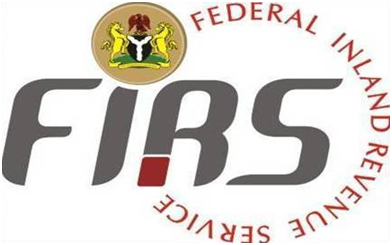 The challenges associated with remittances to foreign companies, obtaining approval for deductible cost and appropriate pricing of technology transfer in the country, may have raised some issues, especially in relation to tax.
The challenges associated with remittances to foreign companies, obtaining approval for deductible cost and appropriate pricing of technology transfer in the country, may have raised some issues, especially in relation to tax.
Besides, while the Federal Inland Revenue Services (FIRS) may be obliged to honour approvals from other regulatory agencies, said it will also carry out an assessment of claims to ensure a fair pricing.
But EY, in collaboration with the National Office for Technology Acquisition and Promotion, at a forum, proffered solutions to some of the challenges companies face in obtaining approval from the National Office for Technology Acquisition and Promotion (NOTAP) over technology transfer agreements with foreign companies.
For EY, the process of obtaining NOTAP’s approval has so far presented challenges to companies hence the need to resolve the issue has become important especially in the context of the current foreign exchange environment.
The professional services company noted that it organised the EY-NOTAP stakeholders workshop to address enquiries pertaining to the registration of specific agreements with NOTAP, how it affects remittances and tax.
The Tax Partner, EY Nigeria, Akinbiyi Abudu, said, “From recent events in the news, the issue of NOTAP and obtaining approval from NOTAP has become a very pertinent one, not just now, but has been on for a while. We want to protect our companies in terms of their payment for services by foreign investors and foreign parents. But at the same time, we also want to ensure we don’t over-protect our companies such that they are not able to obtain those services because they are not able to obtain NOTAP.
“So, this is a very critical issue for Nigeria and for us at this point. Also, with the tightening of the foreign exchange provisions by the Central Bank of Nigeria and reduced foreign reserves of the country, I think all of these make it a very topical and relevant issue to be discussed at this point.”
Abudu noted that the major challenge that companies were facing was the lack of information and understanding of the rules and provisions of NOTAP, saying, “It is important to understand how they are supposed to fill the forms; and consider NOTAP prior to concluding the contracts.”
FIRS representative at the forum and an Assistant Director of the agency, Sunday Okeowo, said the issue of delay in the assessment does not arise, as with or without NOTAP’s approval, they have their own job to do, which must be done.
“NOTAP is complementing what we have done because the law states that before you remit, you must obtain approval from them. So if you did not obtained approval or they refused you approval, it further raises a suspicion from FIRS standpoint.
“This is more about cross-border transactions and I can confirm to you that there is nobody that would not want to take advantage of a situation or loophole.
“It is a global problem and in advance countries the new one is about erosion and profit shifting. Multinationals have come to every country to make money and taxes are costs to them. They would surely want to increase cost in their books to reduce tax,” he said
But the Director of Technology Transfer Registration Department, NOTAP, Dr. Ephraim Okejiri, noted that NOTAP has the mandate to regulate the inflow of foreign technology into Nigeria.
According to him, the main purpose of regulation of foreign technology in Nigeria is to use the inflow of foreign technology to develop Nigeria’s technological capacity, as a basis for sustainable economic and social development.
He noted that the major objectives of the evaluation of a technology transfer agreement are to determine the socio-economic benefit of the agreement to the national technological and economic goals of the country.
“In order to ensure the absorption of technology, NOTAP monitors the implementation of the projects involved in registered agreements. This is to ensure that companies implement the terms and conditions of the registered agreements, and encourage technology transfer to Nigerians in the companies,” he said.
Debunking the delay assertion, he said that there is no specific timeline for approving technology transfer agreements submitted to it, but listed non-submission of all required documents and inappropriate completion of NOTAP forms as issues delaying delay the approval of agreements.
“Sometimes agreements are submitted to NOTAP after execution and in some cases after implementation. It becomes practically difficult for NOTAP to perform its functions in these projects.
“Some agreements are submitted to NOTAP for registration at the point of remittance of fee, when the company is already under pressure to pay. This pressure is transferred to NOTAP and it is given a bad name for not approving agreements quickly,” he said



